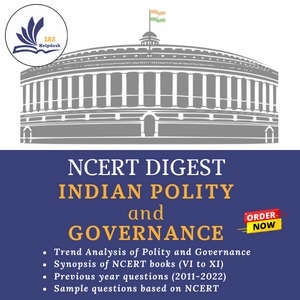Freedom of Speech for Bureaucrats: Balancing Expression with Ethical Guidelines
Description
Description: Understanding the provisions and limitations of freedom of speech for civil servants. Importance of adhering to conduct rules and ethical responsibilities
Freedom of Speech provisions for bureaucrats
Why taken?
The Gujarat government released 11 men convicted on charges of gang-raping Bilkis Bano. Soon thereafter, a senior IAS officer from Telangana, Smita Sabharwal tweeted from her personal account questioning the Gujarat government’s decision sparking off a row whether she was in breach of the Central Civil Services (Conduct) Rules of 1964 and reviving the debate on freedom of civil servants to express their personal views on matters of law and governance.
Introduction
Civil servants, as public servants, are bound by certain codes of conduct and ethical guidelines that govern their behavior and responsibilities. While civil servants have the right to freedom of expression as private individuals, they need to exercise caution when expressing personal views on matters of law and governance
Disciplinary rules
A. Rule 9 of the Central Civil Services (Conduct) Rules of 1964
• It states that “No government servant shall make any statement of fact or opinion which has the effect of an adverse criticism of any current or recent policy or action of the Central government or a state government.
• It is imposed on them:
To prevent chaos in governance and ensure administrative stability
To establish discipline in the organization
Indian bureaucracy has been conceived to be an anonymous entity. Expressing particular views on matters of law and governance by civil servants would prevent Public from fearlessly approaching them for any grievance redressal. There is threat of Political victimization of civil servants also.
However, the rule says he/she cannot criticize a policy judgment which is a very vague expression and needs to be carefully scrutinized as Releasing criminals who had committed heinous crimes prematurely, without application of mind should not be a government policy.
B. Rule 5 of the All India Services (Conduct) Rules, 1968
• It deals with the involvement of a government employee in politics and elections. It places reasonable restrictions on the expression of opinions which extend to political issues.
• Sub Rule 1 of Rule 5 prohibits “government servants from being members of or being associated with any political party or political activity.”
• Sub Rule 4 of Rule 5 states that “no member of the Service shall canvass or otherwise interfere with, or use his influence in connection with, or take part in, an election to any legislature or local authority.
Why rules are needed?
• Political Neutrality: Civil servants are expected to maintain political neutrality and not engage in any activity that may be seen as favoring a particular political party or ideology. Expressing personal views that can be construed as politically biased may be considered a violation of this principle.
• Official Secrets and Confidentiality: Civil servants have access to sensitive information related to governance and policymaking. They are obligated to maintain confidentiality and not disclose official secrets or sensitive information. Expressing personal views that disclose confidential information may be considered a breach of their professional obligations.
• Code of Conduct: Civil servants are bound by the code of conduct applicable to their service. These codes generally require civil servants to conduct themselves with integrity, professionalism, and objectivity. Expressing personal views that undermine the integrity or impartiality expected of civil servants may be deemed inappropriate.
• Conflict of Interest: Civil servants should avoid expressing personal views that create a conflict of interest or compromise their ability to discharge their duties impartially. Personal opinions that may influence their decision-making or compromise their objectivity should be avoided.
• Communication with Media and Public: Civil servants in India may be required to adhere to specific guidelines when communicating with the media or the public. These guidelines often restrict the expression of personal views on matters related to law and governance, as it may be seen as representing the official position of the government.
What are the court’s judgements related to this?
• Lipika Paul v. The State Of Tripura: The court said that a civil servant (the petitioner) is not devoid of her right to free speech, a fundamental right which can be curtailed only by a valid law. However, this is subject to the civil servant not crossing the borders laid down in the Conduct Rules.
• Kerala High Court Judgement: The court said that one cannot be prevented from expressing his views merely because he is an employee. In a democratic society, every institution is governed by democratic norms.
Clearly public platforms and social media should be utilized by civil servants to connect people to government benefits and schemes as well as to communicate government policies to the public, but while expressing their views on matters of law and governance, they should subject themselves to established conduct rules in the larger interest of the country.

